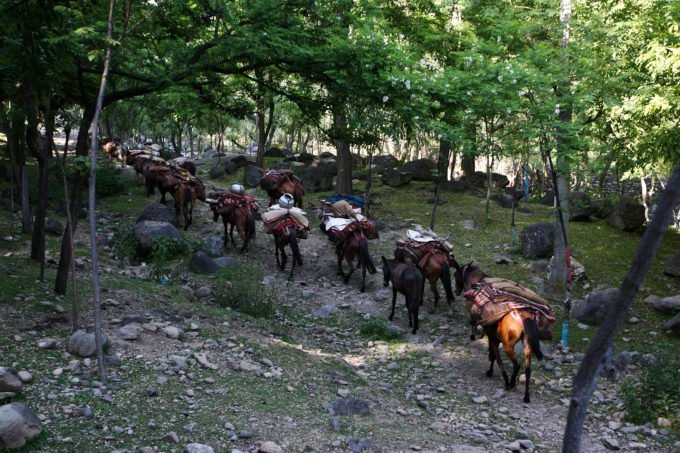
R&K Insider: From Kashmir to Tehrangeles

This week on Roads & Kingdoms: a story from India, where religious tensions followed a brutal tragedy, and how a tiny town in Mali came together to repair a mosque despite threats from militants.
This post originally appeared on June 1, 2018, in Anup Kaphle’s weekly newsletter. Read the archives and subscribe to the newsletter.
Happy Friday, R&K readers.
This has been a busy week. Not just for us at R&K, but for the world in general. The government in Nicaragua was accused of colluding with mobs to suppress demonstrators. India and Pakistan agreed to a cease-fire along their disputed border in Kashmir. And President Trump finally met with Kim.
But the most surreal story of the week came out of Kiev, where a Russian journalist was reported killed on Tuesday. The world mourned, obituaries were written, and then, a day later, he appeared at a press conference in the Ukrainian capital, saying he had faked his death as a part of a sting operation to catch his would-be assassins. Read this piece by Masha Gessen to help make sense of it all.
On R&K, we published this heartbreaking story from India about a nomadic Muslim family whose eight-year-old daughter was gang-raped and murdered by a group of Hindu men—and now members of hardline Hindu groups in the village are harassing and intimidating them. Every summer, the Bakarwal nomads migrate from the lowland grazing grounds in the valley to the mountain pastures with their livestock. But this year, they were forced to leave their homes earlier. R&K met with them a week after they arrived in the Pir Panchal mountains in Indian-administered Kashmir. Stories of threats and intimidation by hardline Hindu groups have become common in India in recent years. Last week, a police officer protected a Muslim man from being lynched by a Hindu mob, whose actions were defended by members of the ruling party. This week, the officer started receiving death threats.
Now for something slightly more uplifting, I’d invite you to the small town of Djenné in Mali. Despite the country’s growing instability and local militant groups stepping up attacks nearby, the whole town comes together to carry on with a sacred annual tradition: replastering their UNESCO-protected mud mosque. Islamist groups, some linked to al-Qaeda, have destroyed ancient artifacts in Malian cities like Timbuktu. Djenné residents have long feared that they could be next. But, as these stunning images show, children, men, and women all came together to take part in the replastering ceremony in April.
Over at our sister-site Explore Parts Unknown, we’ve launched a deep dive into Hong Kong. There’s a lot of good stuff in the series, like this love letter (featuring fabulous illustrations) to the city’s dying dai pai dong, this excellent primer on the city’s relationship with China, and a look at the rowdy bun festival that draws thousands of visitors from around the world. Food’s excellent, too, of course. You can learn how to make delicious curry fish balls with ramen or find exactly where to go for tea-smoked pigeons.
That’s not all. (I told you guys, we’ve been busy). Last week, Roads & Kingdoms Productions, in partnership with CNN, launched a sleek video series in which Anthony Bourdain explores the ethnic enclaves of Los Angeles. You should check out all six videos, of course, but I was particularly excited for the Tehrangeles—aka Little Persia—episode in which Bourdain visits the Taste of Tehran, and enjoys some Koobideh and pulao. It’s the kind of feast that fits my motto: rice and meat, repeat.
By the time you finish reading this, I’ll have landed in Mexico City. It’s my first trip here, so I’ve come armed with options for the best campechano and mezcal. Wish me luck, dear readers. Or even better, tweet me where I must eat.
See you all here next week.
Please follow us on Twitter and Facebook, and encourage your friends and family to subscribe to this newsletter.